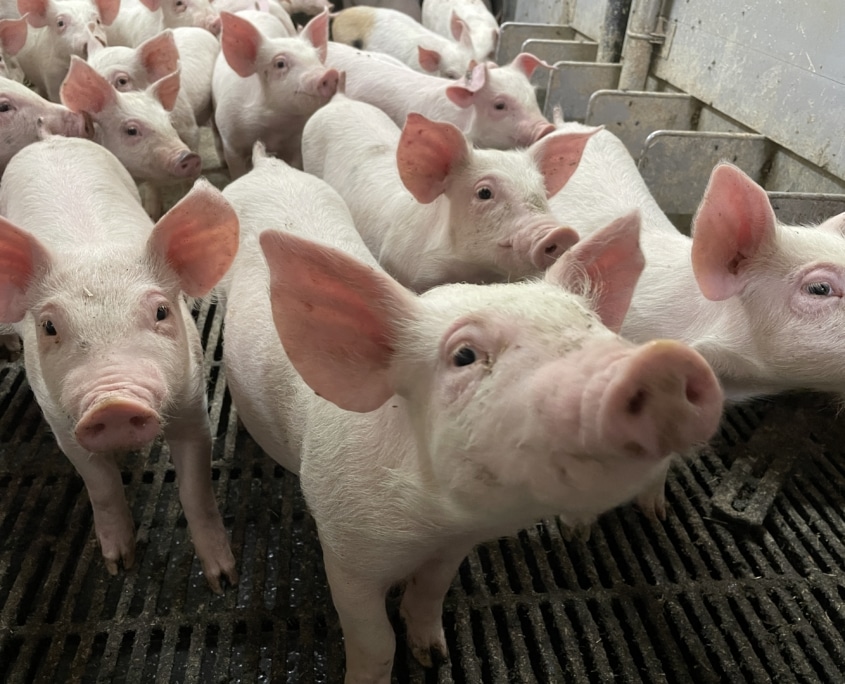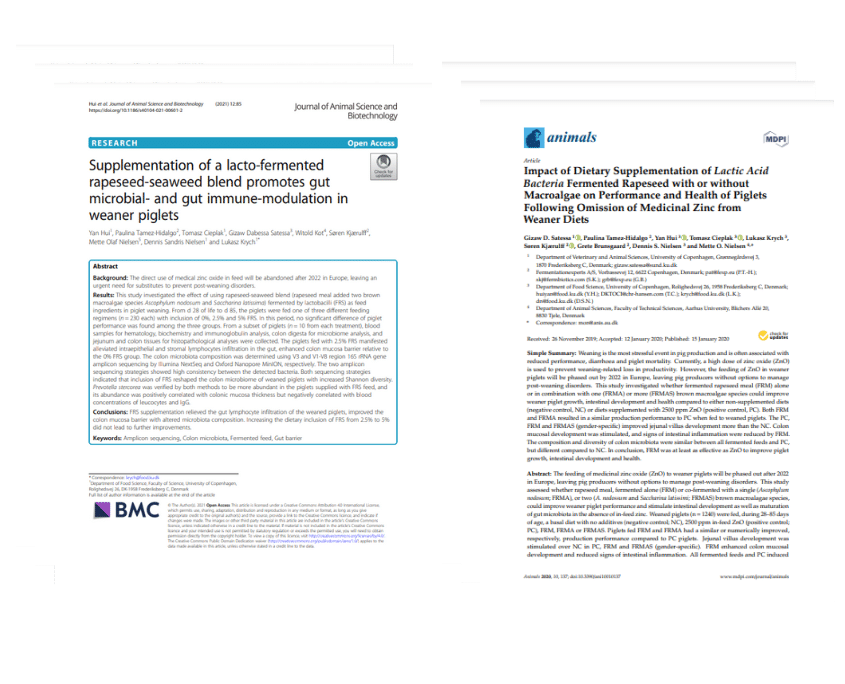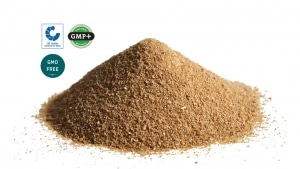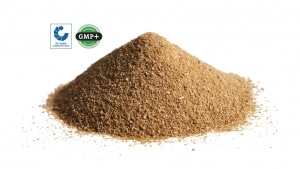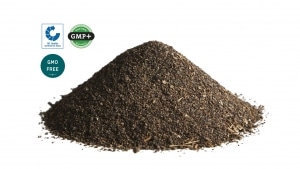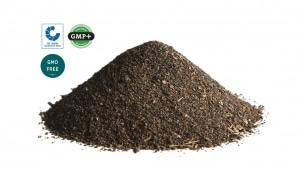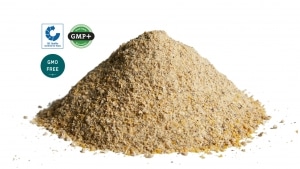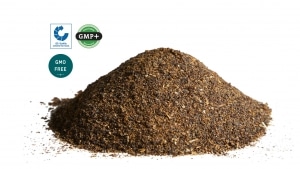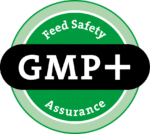Image: H.C. Gæmelke has replaced a large part of the soy protein for piglets with the fermented rapeseed protein, EP100i, from European Protein.
REPLACED SOY WITH FERMENTED RAPESEED MEAL
Pig producer Hans Christian Gæmelke has reduced the inclusion of soy protein and replaced it with a fermented rapeseed meal in his home-mixed feed. An initiative that was initiated to improve gut health but now also provides a bonus in the climate report.
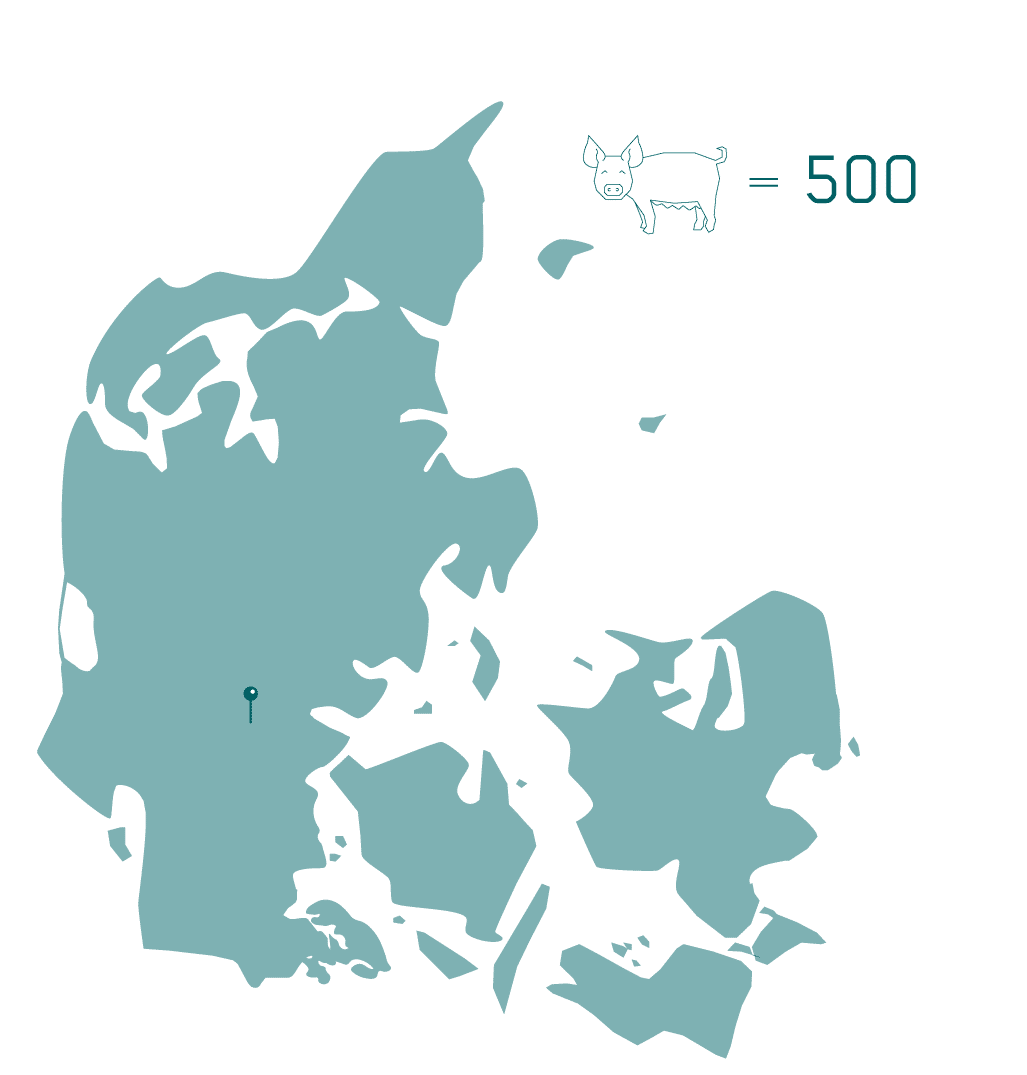
Hans Christian Gæmelke owns and operates Røj Agriculture in Southern Denmark. The farm includes 500 sows and produces 17,000 finishers. Additionally, H.C. manages 620 hectares of land in Jutland.
Climate-smart to feed rapeseed to pigs
When H.C. initially replaced soy protein with the fermented rapeseed protein EP100i, the motivation was not a lower CO2e- footprint but improved gut health. However, H.C. is pleased that the initiative helps produce healthy pigs and contributes to the growing climate agenda.
“Yes, I’m already on it”
The pig producer doesn’t hide the fact that he’s keen to share the positive side effects that the switch has brought:
– It’s also no secret that all the school classes visiting are informed that we have replaced some of the soy protein with domestically produced rapeseed. So, it’s something I focus on. I haven’t used it in my ESG tool yet, but it’s clear that it’s a lever where I think, yes, I’m already on it”, the pig producer shares about his considerations.
Image: Weaners and growing pigs are fed fermented rapeseed meal in place of soy protein and soybean meal.
Saved the climate from 405 tons of CO2
H.C. uses EP100i in his weaning feed and the formulation for pigs weighing 9 to 30 kilograms. EP100i replaces eight per cent of soy protein in the weaning feed and three per cent of soybean meal and five per cent soy protein, respectively, in the blend for pigs weighing 9 and 30 kilograms. EP100i has saved Røj Agriculture 405 tons of CO2 equivalents annually, distributed with 32 tons in the weaning feed and 373 tons in the pig feed.
Feeding trials support the use of EP100i
Copenhagen and Aarhus University have published articles on feeding trials with EP100i in the renowned journals Journal of Animal Science and Biotechnology and Animals. The trials documented that EP100i could replace soy protein with the same productivity and even with better intestinal development. Results that H.C. acknowledges:
– The pigs are healthier, and we haven’t struggled with ulcers like before, says the producer about the switch to EP100i.
BACKGROUND FOR CALCULATIONS
According to the Danish Pig Research Centre (SEGES) feed table, soy protein emits 9.456 kg CO2-eq/kg dry matter. For comparison, EP100i emits 0.686 kg CO2-eq/kg feed (1), representing up to 93% fewer emissions.
If you buy deforestation-free soy protein, emissions, according to SEGES, are 1.81 kg CO2-e/kg dry matter, and 0.62 kg CO2-eq/kg feed (1) for EP100i, representing up to 65% less. The precise reduction depends on the type of soy protein you replace.
(1) Product Environmental Footprint report prepared by Bureau Veritas, 2023
Why use rapeseed meal instead of soy?
Rapeseed is rich in protein, minerals, and vitamins and has favourable growing conditions in the EU. After the oil is pressed, by-products such as rapeseed cake or meal are used for animal feed. When European Protein ferments rapeseed meal with lactic acid bacteria, it can be fed to even the youngest pigs, thereby replacing soy protein for young animals.
Become part of the solution
Feed accounts for up to 70 per cent of a pig’s carbon emissions. With EP100i in piglet feed, you can become part of the solution for tomorrow – starting today.
Want to know more about EP100i for pigs?
If you would like to hear more about EP100i for piglets, please fill out the form below, and we will contact you via email or phone – completely obligation-free.
PROTEINS
For more information about our fermented proteins
ABOUT EUROPEAN PROTEIN
European Protein is a Danish family-owned protein producer. We work to promote health and productivity for animals through functional and sustainable plant proteins. The company was founded in 2011 and has protein factories in Denmark, Ukraine and the US.
HEAD QUARTER
European Protein A/S
Vorbassevej 12, 6622 Bække, Denmark
+45 75 38 80 40, [email protected]
VAT No. 33643675
FACTORIES
Denmark
Mangehøje 4, 7300 Jelling, Denmark
+45 75 38 80 40, [email protected]
Ukraine
222-a Vokzalna Street, Rokytne 09600, Kyiv Region, Ukraine
+38 044 390 40 54, [email protected]
USA
1201 N Ellis Rd #7055, Sioux Falls, SD 57107, USA
+1 605-338-9775, [email protected]

